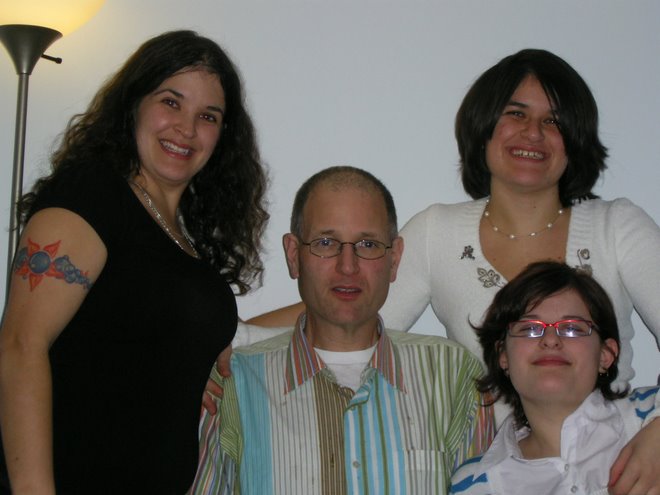In Depth
Exercise and fitness
Your metabolism
Burn, calories, burn
Last Updated September 26, 2007
CBC News
Putting on a little weight even though you swear you haven't upped your food intake or cut your energy expenditure? Well, you can blame a slow metabolism, right?
Probably not.
A slow metabolism means that you burn fewer calories at rest than you should, according to estimates based on your height, weight, age and sex. Very few people can actually say they have a slow metabolism. People who are overweight may actually have a higher metabolic rate because while they may have more fat, they may also have more muscle mass. And muscle mass is key when it comes to your metabolism.
What is metabolism?
Basically, it's the process by which your body converts food into energy. Your food is digested and broken down into proteins, carbohydrates, and fats, which are absorbed by the body. These elements are used to fuel your body. Your body uses only as many calories as it needs to function, depending on your level of activity. Anything above that is stored as fat.
There are three components that determine the rate at which you burn calories: basal metabolic rate (BMR, the energy we burn to keep our organs functioning and to breathe and sleep), thermic effect of food (the energy we burn processing the food we eat) and physical activity.
The basal metabolic rate uses up two-thirds to three-quarters of the calories you take in. There's very little you can do to change the amount of energy required to keep you breathing, to keep your blood moving, and to grow and repair your cells.
And there's not much you can do to alter the amount of energy it takes for your body to process the food you eat. That accounts for about 10 per cent of the calories you consume.
But when it comes to physical activity, you're in the driver's seat. Although the less time you actually spend sitting means the more calories you will burn.
How many calories does my body need?
It's simple math. To calculate how many calories your body needs just to keep functioning without putting on weight (your Basal Metabolic Rate), stick your appropriate numbers in the following formula:
For women, BMR = 655 + (9.6 x weight in kilos) + (1.8 x height in cm) - (4.7 x age in years)
For men: BMR = 66 + (13.7 x weight in kilos) + (5 x height in cm) - (6.8 x age in years)
Once you have figured out your BMR, you can calculate how many calories you should be taking in to maintain your current weight:
If you get little or no exercise, multiply your BMR by 1.2.
If you exercise lightly or take part in easy sports one to three times a week, multiply your BMR by 1.375.
If you are moderately active — three to five times a week — multiply your BMR by 1.55.
If you are very active — hard exercise or sports six to seven times a week — multiply your BMR by 1.725.
If you are extra active — very hard exercise or sports and a physical job — multiply your BMR by 1.9.
So, for example, a 40-year-old moderately active 60 kilogram woman who is 163 cm tall would have a BMR of 1,336.4. She would need around 2,071 calories a day to maintain her weight, depending on body composition. If she has a lot of muscle mass, she would need more calories. If she's overweight, she would need fewer calories to maintain her weight. A registered dietician would be able to provide a more accurate reading with more precise equipment.
Does my metabolism slow with age?
Yes. As you age, mainly because of a loss of muscle mass. You can expect to lose two to three per cent of your muscle mass each decade as you enter your 30s. Muscles require fuel, so the more muscle mass you have, the less of what you eat will be stored as fat.
Neglecting those muscles and eating the same as you've always eaten means you will get fatter — unless you increase your physical activity.
What else can affect the rate at which I burn calories?
Your body size and composition will affect how many calories your body needs to maintain its weight. A six foot tall person would require more calories than someone a foot shorter. Again, if you're carrying around little fat and a lot of muscle, you will need more calories to maintain that body.
Your sex will also affect your caloric needs. A man sitting on the couch, operating the remote control needs more calories than a woman doing the same thing. He might burn off the snack they're sharing, while it goes "straight to her hips."
Heredity will also play a role. Look at your parents, grandparents and siblings. The odds are, you'll be able to see whether you should consider cutting back your intake or increasing your physical activity — or, more likely, a combination of both.
What can I do to increase my metabolism?
Unfortunately, you can't change your basal metabolic rate or the amount of energy your body uses to process the food you eat. But you can do something about your level of physical activity and the amount of food you eat.
Here are a few steps you can take:
Eat often: eating five or six small meals throughout the day maintains a constant flow of energy to your body and keeps your body's furnace processing that food. Calories consumed during larger meals are more likely to be stored as fat.
Eat a balanced diet: your body needs a mix of protein, fibre and carbohydrates — especially complex carbohydrates like whole grains. Avoid processed foods and sugary drinks. Choose fruit over fruit juice — you can take in a lot of calories and sugar, without fruit's filling fibre if you drink a lot of juice.
Strength train: building muscle mass will replace stored fat. It takes more calories to maintain muscle than fat.
Ensure that you get cardiovascular exercise: 20 to 30 minutes of exercise five days a week that gets your heart rate up will help burn calories. Brisk walking, swimming, cycling or running will all do the trick. These exercises may not build muscle mass as efficiently as strength training, but combining cardio and strength training will help turn your body into a calorie burning machine. (http://www.cbc.ca/news/background/exercise_fitness/metabolism.html September 26, 2007)
Friday, September 28, 2007
Subscribe to:
Post Comments (Atom)






No comments:
Post a Comment